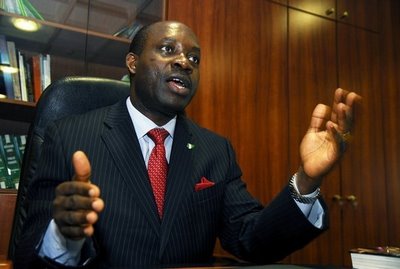Sanusi, Ciroma, Others Voice Opposition to CBN Act Ammendment
Several former officials of the Central Bank of Nigeria (CBN) have expressed their opposition to lawmakers plans to tamper with the autonomy of the apex financial institution.
Former minister of Finance, Dr. Adamu Ciroma; pioneer director Alhaji Hamza Otiti; and another former director Prof. Green Nwankwo spoke at a one-day public hearing organized by the Senate Joint Committee on Banking and Judiciary to give a forum to those opposed to the plan to amend the CBN Act (2007).
The CBN governor stated that tampering with the autonomy of the bank would create a heightened risk perception for foreign investors and reduce investments in the country. He also said it was against foreign best practices citing Zimbabwe as the only country where such a thing was being practiced. He buttressed on the economic situation in Zimbabwe.
His words, ““What is so special about the CBN that its own budget, out of all the central banks in the world, has to come to parliament? The lack of budgetary independence can potentially be used to undermine the whole function of the central bank.”
Mallam Ciroma stated that the CBN should be able to operate outside of the political environment, and politicizing the operations of the CBN could lead to dire situations in times of crisis.
He said, ““Unless you can deal with the economy and monetary policies right when things go wrong with the CBN, I don’t know where the country will be. Let us not bring a policy that will open the system to things that we cannot predict.
“The Board of Directors of CBN is made up of people with knowledge and integrity. Why do you want to do something different? Leave the CBN well alone. What is important is ensuring that the right thing is done and that there is trust in the internal monetary system. We should not unnecessarily tamper with what is working.”
Otiti said, “The CBN Act should be left as it is; it should not be subjected to the appropriation of the National Assembly. The International Monetary Fund will not respect the bank if the present Act is changed.”
Nwankwo also chorused similar viewpoints as his counterparts.
He said, “The CBN has a long-term view of the economy, but the political authorities have short-term view. If the Act is amended, there may be lack of confidence, and when there is a lack of confidence, there will be no investment, even when there is money, nobody will be willing to touch the money.”





